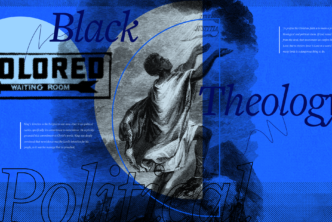In this excerpt about miracles in the Bible from God in the Dock, Lewis explains why belief in miracles can’t be dismissed as a vestige of an antiquated worldview. It has been lightly edited for length.
***
I have known only one person in my life who claimed to have seen a ghost. It was a woman; and the interesting thing is that she disbelieved in the immortality of the soul before seeing the ghost and still disbelieves after having seen it. She thinks it was a hallucination.
1. Seeing is not believing
In other words, seeing is not believing. This is the first thing to get clear in talking about miracles. Whatever experiences we may have, we shall not regard them as miraculous if we already hold a philosophy which excludes the supernatural. . . . We can always say we have been the victims of an illusion; if we disbelieve in the supernatural this is what we always shall say. Hence, whether miracles have really ceased or not, they would certainly appear to cease in Western Europe as materialism became the popular creed. For let us make no mistake. If the end of the world appeared in all the literal trappings of the Apocalypse, if the modern materialist saw with his own eyes the heavens rolled up and the great white throne appearing, if he had the sensation of being himself hurled into the Lake of Fire, he would continue forever, in that lake itself, to regard his experience as an illusion and to find the explanation of it in psycho-analysis, or cerebral pathology. Experience by itself proves nothing. If a man doubts whether he is dreaming or waking, no experiment can solve his doubt, since every experiment may itself be part of the dream. . . .
2. Everyone has preconceptions
This fact, that the interpretation of experiences depends on preconceptions, is often used as an argument against miracles. It is said that our ancestors, taking the supernatural for granted and greedy of wonders, read the miraculous into events that were really not miracles. And in a sense I grant it. That is to say, I think that just as our preconceptions would prevent us from apprehending miracles if they really occurred, so their preconceptions would lead them to imagine miracles even if they did not occur.
3. Ancient people believed in the laws of nature, too
. . . But there is one thing often said about our ancestors which we must not say. We must not say ‘They believed in miracles because they did not know the Laws of Nature.’ This is nonsense. When St Joseph discovered that his bride was pregnant, he was ‘minded to put her away’. He knew enough biology for that. Otherwise, of course he would not have regarded pregnancy as a proof of infidelity. When he accepted the Christian explanation, he regarded it as a miracle precisely because he knew enough of the Laws of Nature to know that this was a suspension of them. When the disciples saw Christ walking on the water they were frightened: they would not have been frightened unless they had known the laws of Nature and known that this was an exception. If a man had no conception of a regular order in Nature, then of course he could not notice departures from that order: just as a dunce who does not understand the normal metre of a poem is also unconscious of the poet’s variations from it. Nothing is wonderful except the abnormal and nothing is abnormal until we have grasped the norm. Complete ignorance of the laws of Nature would preclude the perception of the miraculous just as rigidly as complete disbelief in the supernatural precludes it, perhaps even more so. For while the materialist would have at least to explain miracles away, the man wholly ignorant of Nature would simply not notice them.
***
Grab the C.S. Lewis Collection to add 30 volumes of Lewis’ timeless work to your Logos library.
For more C.S. Lewis wisdom, check out these posts:





